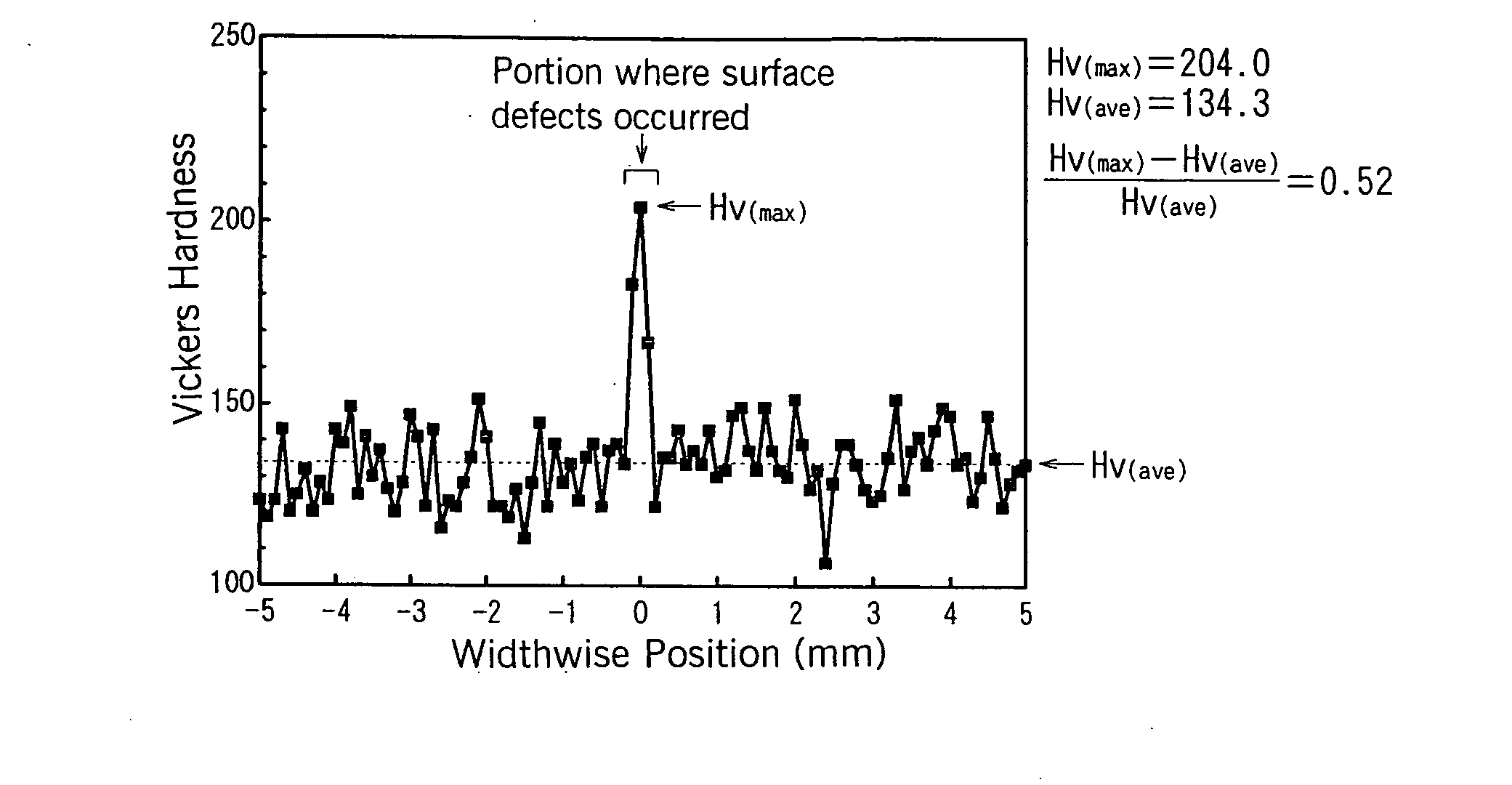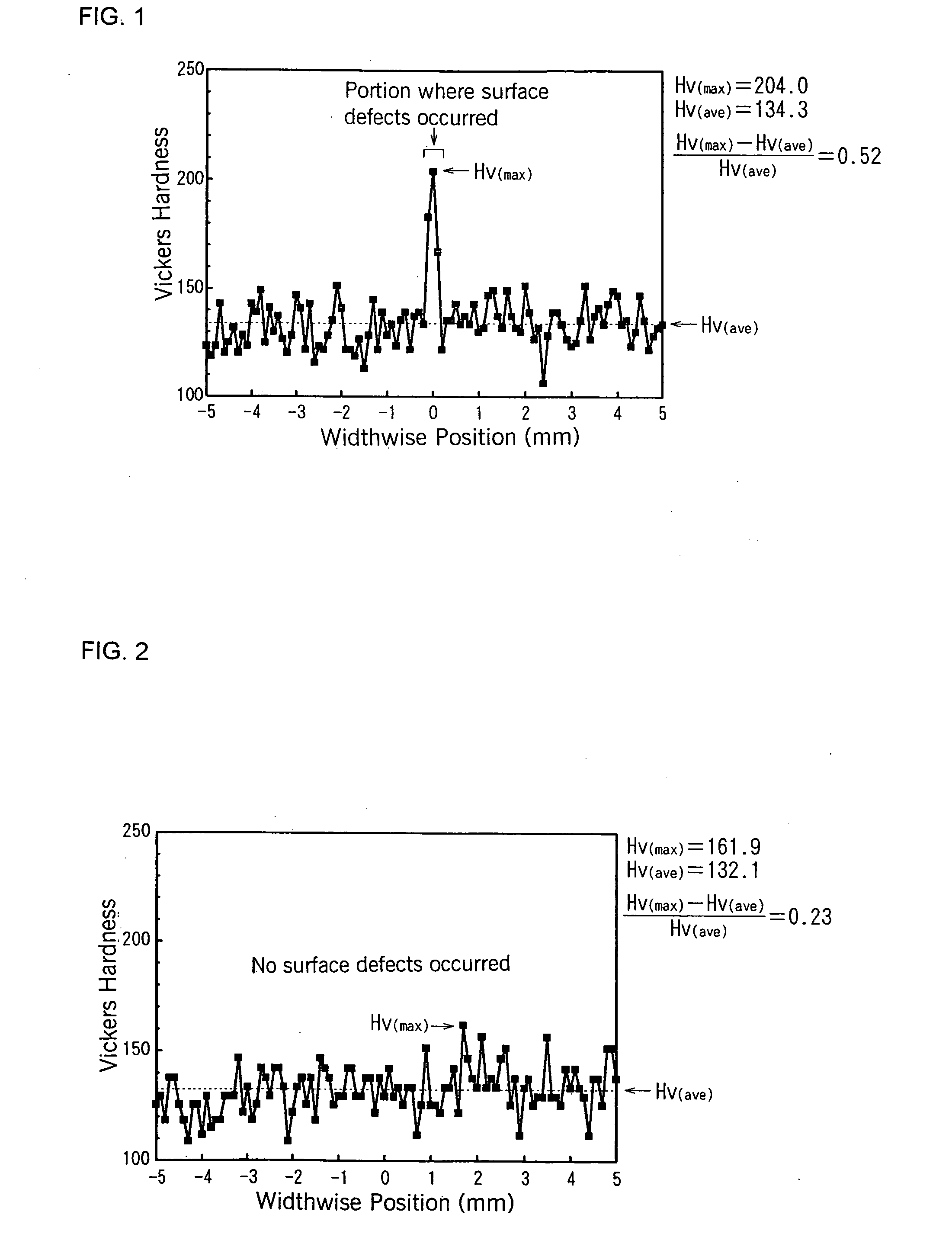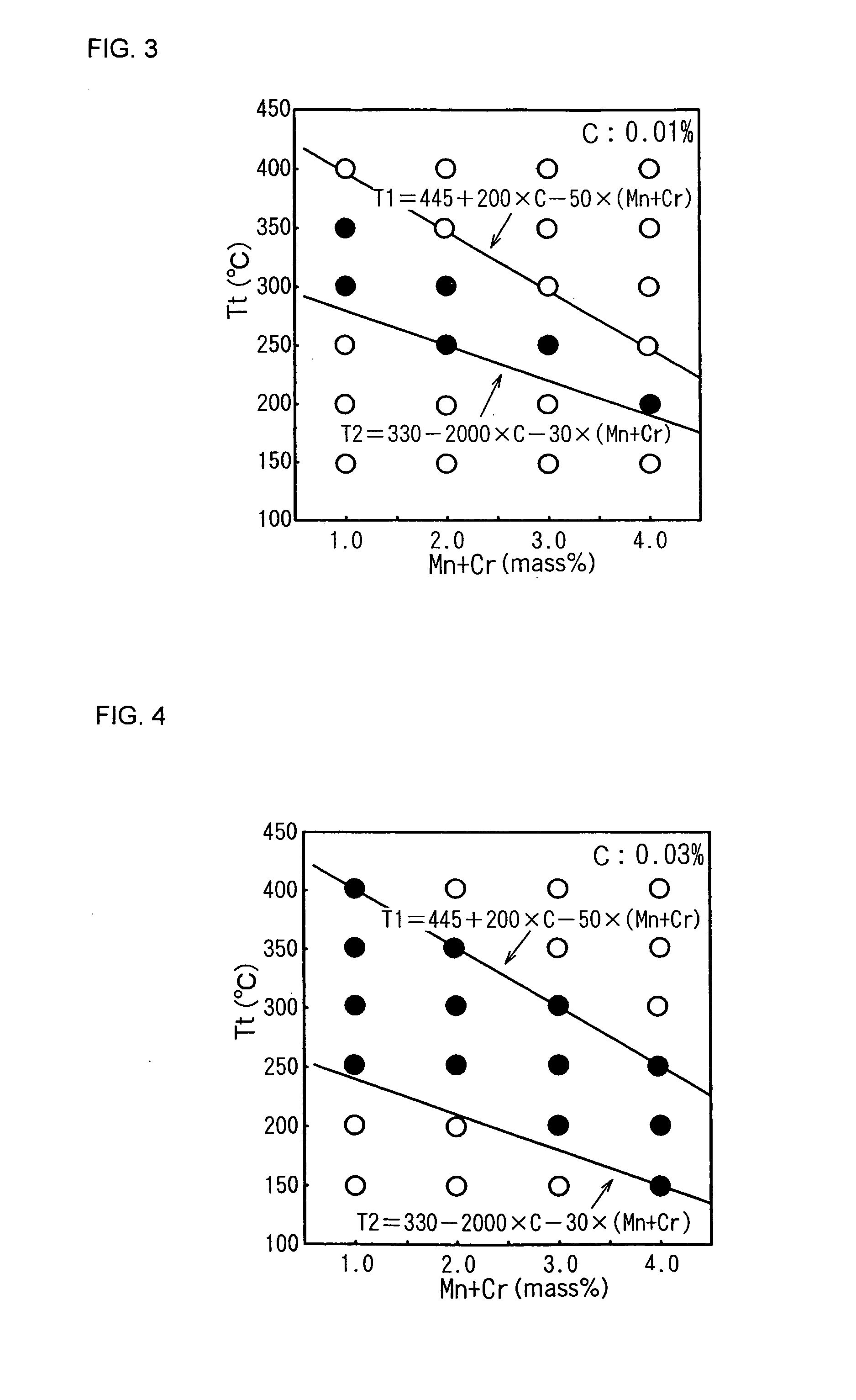High-strength cold-rolled steel sheet, high-strength plated steel sheet, and methods for their manufacture
- Summary
- Abstract
- Description
- Claims
- Application Information
AI Technical Summary
Benefits of technology
Problems solved by technology
Method used
Image
Examples
example 1
[0124]This invention will be explained more specifically while referring to examples.
[0125]Steels having the compositions set forth in Table 1 were melted in a laboratory vacuum remelting furnace and cast. The resulting steel ingots were hot forged to form into 30 mm slabs, and the slabs were heated to 1240° C. and held at that temperature for one hour using an electric heating furnace. After the slabs were withdrawn from the furnace, they were hot rolled in a temperature range of at least 900° C. with a laboratory hot rolling mill to obtain hot rolled steel sheets with a thickness of 5 mm.
TABLE 1Chemical Composition (%) (Remainder: Fe and unavoidable impurities)SteelCSiMnPSsol. AlNCrTiBMoA0.0510.031.530.0160.0040.0310.00240.34——B0.0220.011.380.0140.0040.0460.00210.87——C0.0290.011.160.0150.0040.0520.00230.330.00090.2D0.0280.021.460.0150.0040.0550.00210.550.013—E0.0180.011.500.0140.0040.0420.00240.410.0014
[0126]After hot rolling, the sheets were immediately cooled by water spraying t...
example 2
[0137]Steels having the chemical compositions shown in Table 1 were melted in a laboratory vacuum remelting furnace and cast into ingots. The resulting ingots were formed by hot forging into 30 mm slabs, they were heated to 1240° C. and held at that temperature for one hour using an electric heating furnace. After the slabs were removed from the furnace, they were subjected to hot rolling in a temperature range of at least 900° C. with a laboratory hot rolling mill to obtain hot rolled steel sheets with a thickness of 4 mm.
[0138]After hot rolling, the steel sheets were immediately cooled to 500° C. by water spray cooling, and this temperature was made the coiling temperature. The steel sheets were then placed into an electric heating furnace maintained at this temperature and held therein for one hour, and then they were oven cooled at a cooling rate of 20° C. per hour to simulate slow cooling after coiling. The resulting steel sheets were pickled and then cold rolled with a reducti...
example 3
[0149]Slabs having the compositions shown in Table 4 were manufactured by continuous casting. The slabs were heated to 1240° C. and then hot rolled at a temperature of at least 900° C., and after cooling, they were coiled at 600° C. to obtain hot-rolled coils with a sheet thickness of 4.0 mm. The resulting hot-rolled coils were pickled and then cold rolled to a thickness of 0.8 mm.
TABLE 4Ac1Ac3Chemical Composition (%) (Remainder: Fe and unavoidable impurities)transformationtransformationT1T2SteelCSiMnPSsol. AlNCrBMoTipoint (° C.)point (° C.)(° C.)(° C.)F0.00150.011.430.0140.0040.0470.00240.74———807846337262G0.0140.011.450.0150.0050.0430.00250.72———776831339237H0.0250.011.450.0160.0050.0440.00250.75———758823340214I0.0540.011.430.0150.0040.0460.00230.73———752805348157J0.0260.010.310.0140.0040.0450.00450.34———765861418259K0.0230.012.250.0140.0050.0480.00250.35———744810320206L0.0240.012.790.0150.0050.0420.00240.33———739797294188M0.0250.010.720.0140.0050.0420.00260.550.0005——767856387242...
PUM
| Property | Measurement | Unit |
|---|---|---|
| Temperature | aaaaa | aaaaa |
| Temperature | aaaaa | aaaaa |
| Length | aaaaa | aaaaa |
Abstract
Description
Claims
Application Information
 Login to View More
Login to View More - R&D
- Intellectual Property
- Life Sciences
- Materials
- Tech Scout
- Unparalleled Data Quality
- Higher Quality Content
- 60% Fewer Hallucinations
Browse by: Latest US Patents, China's latest patents, Technical Efficacy Thesaurus, Application Domain, Technology Topic, Popular Technical Reports.
© 2025 PatSnap. All rights reserved.Legal|Privacy policy|Modern Slavery Act Transparency Statement|Sitemap|About US| Contact US: help@patsnap.com



